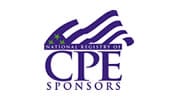An Intensive 5-day Training Course
Best Practices for Protocol Officers
Strengthening Knowledge, Skills & Capabilities

Course Introduction
A high-performing protocol officer must be a good facilitator, negotiator, researcher, conversationalist, networker, and event organiser. They can communicate clearly, analyse and report on situations, remain calm under pressure, treat people with respect and dignity and multi-task, when representing their organisation in cross cultural settings.
This Oxford Management Centre’s Best Practices for Protocol Officers training course is designed to enable you to boost your personal and interpersonal skills when you represent your organisation nationally and internationally.
This Oxford Management Centre’s training course highlights:
- How leaders expect protocol officers to support their organisation nationally and internationally
- The five key roles of protocol officers and the capabilities needed in each role
- Verbal and non-verbal communication skills for effective diplomacy
- Step-by-step approach for planning, delivering, and evaluating both formal and social diplomatic events
- International behavioural expectations for conduct and etiquette
Objectives
By the end of this Best Practices for Protocol Officers training course participants will be able to demonstrate the following skills, knowledge, and behaviours:
- Conducting quantitative and qualitative research, analysing results, drawing conclusions, and making recommendations
- Building relationships with and between others based on trust and respect
- Asking good questions and listening to answers, checking understanding and reframing
- Drafting diplomatic documents including letters of introduction, event invitations, briefings, and emails
- Reading and understanding complex and technical diplomatic documents, summarising, and explaining key points
- Structuring presentations so key points are understood and remembered
- Creating and delivering events that support a positive reputation for their organisation
Training Methodology
The training course combines presentations that share both theory and industry best practices with practical sessions in accordance with adult learning and blended learner-centred principles.
Participants will have opportunities to put into practice the skills they develop and enhance during the course. We make the most of small and whole group exercises, videos, case studies, peer exchange, brainstorming, role plays, simulations, and discussions.
We will spend time working one-on-one and in small groups to resolve the challenges participants face. They will leave with new ideas and skills they can implement immediately they step back into their teams.
Participants are encouraged to reflect on and discuss their own professional issues and experiences. Overall, 50% of training will be experiential and 50% will be theoretical.
Participants will receive a workshop manual with an introduction to the training course slides, overview, background information, exercises, and plenty of space for their own notes.
Organisational Impact
Participants will return to their organisations able to fulfil the responsibilities of a protocol office including:
- Research to detect potential issues and conflicts, plus advice on how to respond
- Building strong relationships with external stakeholders, both individuals and organisations
- Delivering formal and informal events for diplomats and country leaders that strengthen relationships with other countries and organisations
- Supporting public relations and reputation management activities
- Administering protocol processes and procedures so these are efficient and effective
Personal Impact
Participants will hear and discuss latest protocol and diplomacy strategies and hone their skills in:
- Conducting research, analysing data, drawing conclusions, making recommendations, and presenting to their executives and leaders
- Event management including planning, implementation, and post-event evaluation
- Verbal and non-verbal communication via face2face, phone, email, and social media
- Administrative functions including arranging travel, visas, and accommodation
Who Should Attend?
Individuals whose capabilities and performance will improve when they attend this training course include:
- Protocol officers, PR officers and event organisers in the oil & gas industry, telecommunications, finance and healthcare
- Protocol officers, PR officers and communication officers in government departments, government agencies and major public bodies
- Personal assistants and executive assistants in the oil & gas industry, telecommunications, finance and healthcare
- Protocol officers, PR officers and event organisers in embassies, consulates and high commissions
Course Outline
Day One
Understanding the Purpose of Protocol & Diplomacy
- Creating conditions for beneficial relations and business to develop
- Showing respect, building trust, facilitating decision making at executive levels
- Developing successful long-term co-operation between nations and global businesses
- Creating a safe environment for relationships to flourish
- Ensuring representatives follow the international rules for conduct and procedures in formal situations.
Day Two
The Role of a Protocol Officer
- Conducting research and advising executives and leaders
- Facilitating relationships between organisations and governments
- Managing events and issues
- Public relations and reputation management
- Administering travel, visas, and accommodation
Day Three
Essential Communication Skills
- Active listening – accurate note taking and minutes, questioning skills and feedback
- Reading – understanding and analysing complex or technical literature
- Writing – letters of introduction, briefings, invitations, responding to letters and emails
- Speaking – conversations and presentations
- Facilitation – problem solving, creating collaboration and consensus
- Social media – posting, commenting, and sharing information online
Day Four
Planning & Managing Events
- Planning and managing a visit, conference, or social event
- Liaising with the other side to agree itineraries, agendas, and travel arrangements
- Greeting guests and receiving lines, titles, and terms of address
- Order of precedence, flags, anthems, etc
- Dining and seating
- Giving and receiving gifts
Day Five
Essential Etiquette
- Codes of conduct
- Phone handling etiquette
- Email etiquette (netiquette)
- The art of conversation: verbal diplomacy
- Action planning
Certificate
On successful completion of this training course, Oxford Management Centre Certificate with eligible Continuing Professional Education credits (CPE) from National Registry of CPE Sponsor will be awarded to the delegates
Accreditation

In association with
FREQUENTLY ASKED QUESTIONS
Yes, we provide assistance in securing both hotel reservations & entry visa on all our international training venues, for delegates attending our training courses. For further information / assistance, please contact our Customer Service at:
- Telephone: +971 50 985 0174
- E-mail: info@oxford-management.com
Yes, Oxford Management Centre is accredited by the following professional bodies;
National Association of State Board of Accountancy (NASBA)
The Oxford Management Centre is registered with NASBA as a sponsor of Continuing Professional Education (CPE) on the National Registry of CPE Sponsors. NASBA have final authority on the acceptance of individual courses for CPE credit.
Yes, discounts are available. For further information please call +971 50 985 0174 or email, info@oxford-management.com
Note: Discounts are not applicable with any other special offer that may be available.
All course bookings made through Oxford Management Centre are non-refundable. By registering for a course, you acknowledge and accept that fees are payable in full and are not subject to refund under any circumstances, including but not limited to participant dissatisfaction, changes in personal or professional circumstances, or partial attendance.
Oxford Management Centre reserves the right to make reasonable adjustments to course content, trainers, or schedules where necessary, without entitling delegates to a refund. Full details of each course – including objectives, target audience, and content – are clearly outlined prior to enrolment, and it is the responsibility of the delegate to ensure suitability before booking.
There are 2 easy ways to register:
- Online: Select the training course you want to register for, Click the “Book Your Place” button on the course page, complete the form and click submit.
- E-mail: Send your details to info@oxford-management.com
We request that all cancellations be made at least one week before the class start date. You may reschedule this class without any penalty. If not, a $250 fee will be charged for cancellations received less than one week before a class begins and for no-shows. Cancellation penalties and any fees incurred by Oxford Management Centre will be deducted from refunds.
For more information request, email info@oxford-management.com or call +971 50 985 0174.
The classroom training fees include course presentation, relevant materials, physical & digital documentation, lunch and refreshments served during entire training. Accommodation and transportation are not included in the training course fees.
While, online training fees cover the course presentation and digital documentation and relevant materials.
The Oxford Management Centre Certificate of Completion with corresponding CPE credits shall be awarded to delegates who has successfully completed the training course.
Payment must be received before the training course commences. You can make payment by bank draft, cash, credit card or wire transfer.
Note: If the payment is not received, Oxford Management Centre has the right to refuse admission.
Upon receipt of your registration form, we will send you the following by e-mail:
- Registration Confirmation
- Invoice/Receipt (where appropriate)
If you register online you will receive an e-mail within 24 hours confirming your registration.











